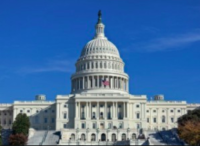Savings From a Single Food Safety Agency Appeal to Some House Republicans

Source: Food Safety News
Some House Republicans appear to be considering proposals for a single food safety agency.
In January, Rep. Rosa DeLauro (D-CT) and Sen. Dick Durbin (D-IL) introduced bills to establish such an agency independent of any federal department.
In his budget proposal for fiscal year 2016, President Obama proposed the consolidation of the Agriculture Department’s Food Safety and Inspection Service (FSIS) and the Food and Drug Administration’s food safety components into a new agency within the Department of Health and Human Services.
With food safety oversight currently split up among 15 agencies, DeLauro and Durbin said they thought that tackling the costs of a dispersed system with overlapping responsibilities would appeal to their Republican colleagues.
Some of the questions put to Deputy Under Secretary for Food Safety Al Almanza on Thursday during a budget hearing before the House Agriculture Appropriations Subcommittee suggest that those in the majority party are considering the savings.
“It’s helpful for us to have that information as we try to decide whether these are good ideas or bad ideas,” said Rep. Kevin Yoder (R-KS). “I think most of us would certainly believe that government is too large, too expensive, too bureaucratic. So opportunities to reduce some of those inefficiencies, while still providing a good service to our constituents, would be a high priority.”
Yoder asked Almanza what the consolidation of the agencies would look like, how it would affect constituents, and what savings could provide.
“I think it’s too early to tell because we haven’t even started the discussion of how that would look,” Almanza said. “As long as we are at the table and our people can engage in what we believe is the core mission of our agency, that’s where we would be in the discussion.”
In response to Rep. David Young’s (R-IA) questions about prospective savings, USDA’s Budget Officer Michael Young, who appeared as a witness alongside Almanza, said that, “at this point in time, I don’t have any specifics on what the savings might be.”
“Is it your bet that there will be savings and this isn’t going to cost us more?” the congressman asked.
“Again, at this point, I don’t think I can speculate on that,” said the budget officer.
“When you can speculate you’ll let us know?” the congressman pressed.
“Yes, we will,” responded the budget officer.
When Subcommittee Chairman Robert Aderholt (R-AL) asked whether there was a “scientific justification” that supports consolidation of FSIS and FDA, Almanza replied, “not that I’m aware of.”
Overall, the budget hearing was more subdued than last year’s discussion when nearly every issue dogging the agency came up for discussion. Apart from the proposed single food safety agency, most of this year’s questions tied into reports of inspector shortages.
Reps. Sam Farr (D-CA), Chellie Pingree (D-ME) and David Valadao (R-CA) expressed concerns that small beef and chicken producers might not have access to inspected slaughterhouses.
And DeLauro and Pingree raised the issues of increased line speeds and eliminated inspectors in the New Poultry Inspection System (NPIS).
“I feel confident that the New Poultry Inspection System will do exactly what we expect, which is that it will not only reduce foodborne illnesses, but it will put inspectors in the right places to perform food safety actions,” Almanza said.
He also insisted that inspectors would be made available for small businesses and that there is not a widespread shortage of inspectors.
“I know there’s a lot of discussion of shortages, but I travel around the country and I hear about a spot here and a spot there, but it’s not pervasive,” Almanza said.
Looking for a reprint of this article?
From high-res PDFs to custom plaques, order your copy today!





